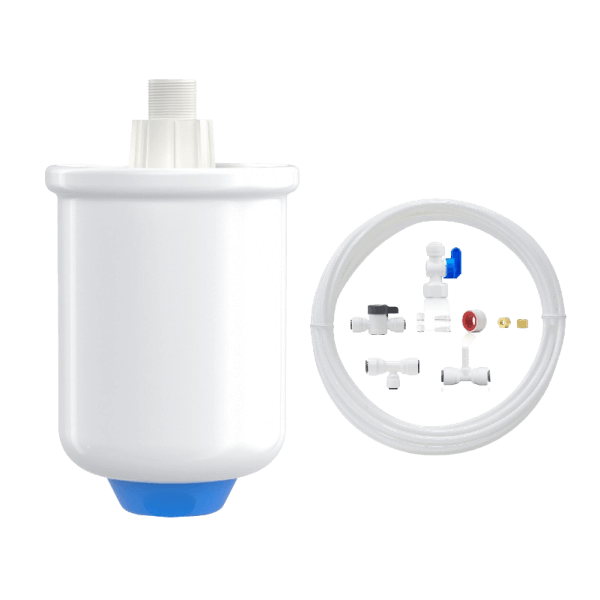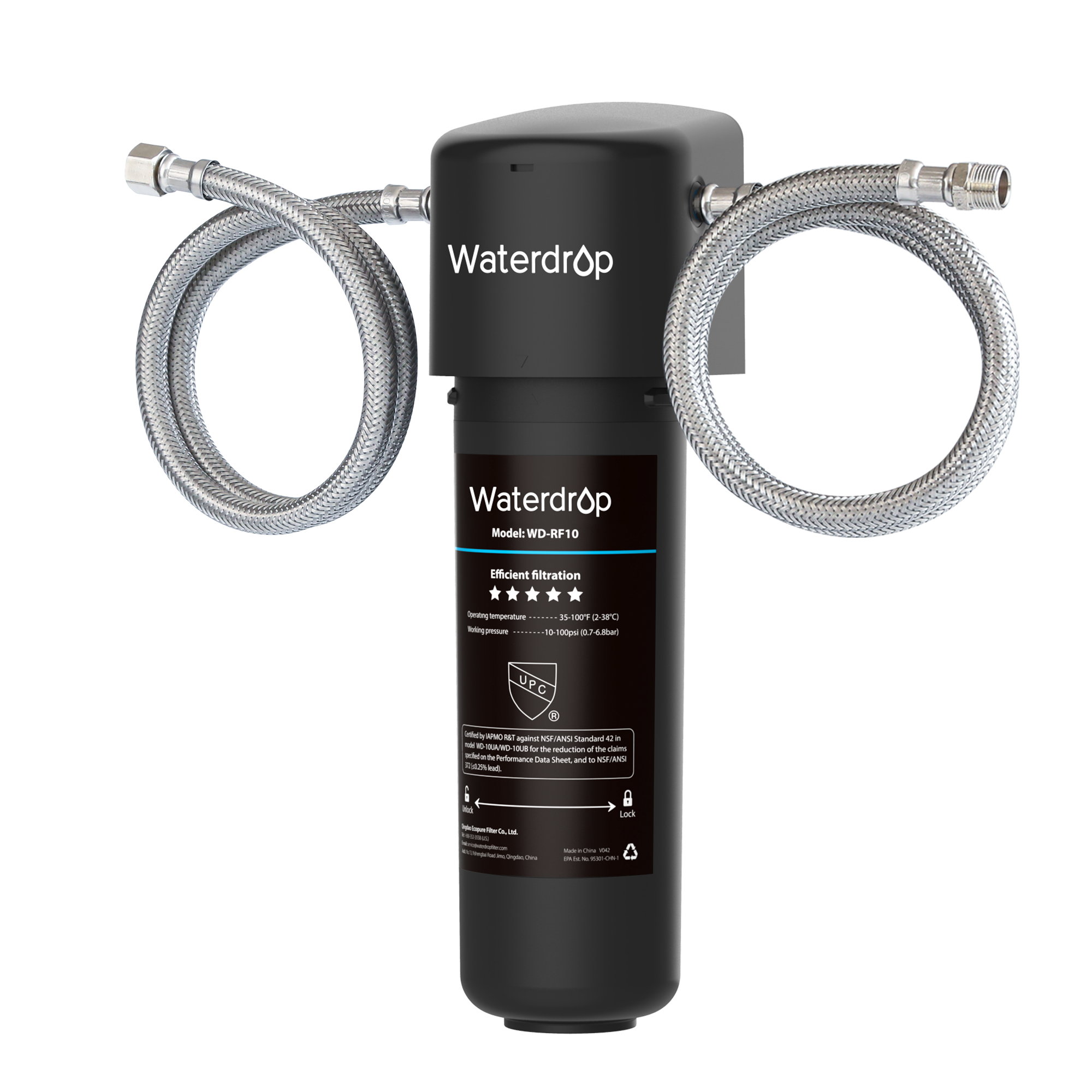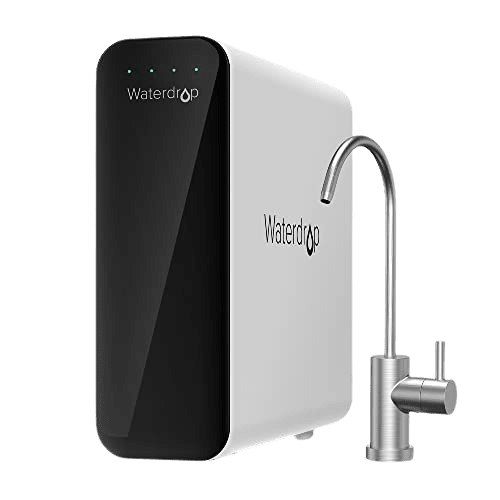Is Drinking Coconut Water Safe During Pregnancy?
由 Dr. Jonathan Doyle - Updated January 12, 2025
Pregnancy is a time when women are more mindful of the foods and drinks. It’s important to make informed decisions about everything you put in your body, especially when it comes to hydration. While water remains the number one choice for hydration, many pregnant women also consider coconut water for its health benefits.
But is drinking coconut water safe during pregnancy? In this article, we’ll explore the benefits, potential risks, and why reverse osmosis water is a great option for daily hydration during this important time.
What is Coconut Water and Why Do People Drink It?
Coconut water is the clear liquid found inside young coconuts, and it’s often considered a natural sports drink. Packed with electrolytes like potassium, sodium, and magnesium, coconut water is known for its hydrating properties. Many people, particularly athletes, drink it to replenish lost fluids and nutrients.
For pregnant women, staying hydrated is crucial to ensure both maternal and fetal health. This is where coconut water comes in. With its natural composition, coconut water is often seen as a refreshing, health-boosting drink.
Health Benefits of Drinking Coconut Water During Pregnancy
When it comes to hydration, drinking coconut water during pregnancy can offer several potential benefits. Let’s dive into some of the reasons why many expectant mothers choose to drink it.

1. Natural Electrolyte Balance
Coconut water is rich in electrolytes, which are essential for maintaining the balance of fluids in the body. During pregnancy, the body goes through numerous changes, and staying hydrated is essential to support increased blood volume and fluid retention. Electrolytes, such as potassium and magnesium, help regulate your heart, muscle, and nerve function, making coconut water a natural way to maintain this balance.
2. Supports Digestive Health
Pregnancy can bring a variety of digestive issues, such as constipation and bloating. Coconut water is naturally rich in fiber and can help prevent constipation by promoting regular bowel movements. It also contains enzymes that may aid digestion, making it a gentle and soothing beverage for your digestive system.
3. May Help Reduce Morning Sickness
Morning sickness , which affects many women during the first trimester, can leave you feeling nauseous and dehydrated. Coconut water’s light and hydrating nature may help soothe an upset stomach and prevent dehydration, which is common during bouts of nausea and vomiting. Drinking coconut water may provide some relief and help keep you hydrated when you’re struggling with morning sickness.
4. Hydrates and Prevents Dehydration
Pregnancy increases your body’s need for fluids, and dehydration can lead to complications like headaches, fatigue, and urinary tract infections. Drinking coconut water provides an additional source of hydration that may be easier on your body than regular water, especially if you’re having trouble drinking enough fluids. Coconut water also replenishes electrolytes lost through sweating, urination, and vomiting.

Are There Any Risks of Drinking Coconut Water During Pregnancy?
While coconut water can be beneficial, it’s important to approach it in moderation. As with any food or drink during pregnancy, there are a few considerations to keep in mind.
1. Sugar Content in Packaged Coconut Water
Most commercially available coconut water has added sugars or preservatives, which can affect its health benefits. If you choose packaged coconut water, always check the label for added ingredients and opt for natural, unsweetened varieties. Fresh coconut water straight from the coconut is often the best choice, as it contains fewer additives.
2. Allergies or Sensitivities
Though rare, some people may have an allergic reaction to coconut water. If you’ve never consumed coconut water before, it’s a good idea to start with a small amount and monitor your body’s response. If you experience any itching, swelling, or other allergic reactions, discontinue use and consult your healthcare provider.
3. Overconsumption and Electrolyte Imbalance
Coconut water is rich in potassium, and while potassium is essential for health, consuming it in excess can lead to an electrolyte imbalance. Overconsumption of coconut water could cause hyperkalemia, a condition characterized by elevated potassium levels in the blood. It’s important to consume coconut water in moderation and to balance it with other fluids to avoid this issue.

Why Reverse Osmosis Water is the Best Hydration Option During Pregnancy
While coconut water offers hydration and other health benefits, drinking plain water is still essential. For optimal hydration, reverse osmosis (RO) water is an excellent option. Reverse osmosis is a water purification process that removes impurities, contaminants, and minerals from water, providing you with clean, pure hydration.
1. Pure and Contaminant-Free Water
Reverse osmosis water is free of harmful contaminants such as bacteria, chlorine, fluoride, and heavy metals. During pregnancy, your immune system is more vulnerable, so consuming pure, filtered water is crucial to avoid exposure to toxins and bacteria that could potentially harm you or your baby. RO water ensures that you’re drinking the cleanest water possible, free from contaminants that may be present in tap water.
Click here to learn more about: Best Water Filtration System for Home
2. Promotes Healthy Hydration
Drinking reverse osmosis water helps maintain proper hydration levels, supporting your body’s increased need for fluids during pregnancy. Proper hydration is essential for maintaining healthy amniotic fluid levels, aiding in digestion, and supporting the development of your baby.
3. Supports the Health of Your Kidneys
During pregnancy, your kidneys work harder to filter waste and excess fluids from your body. Reverse osmosis water provides a clean, pure source of hydration that reduces the burden on your kidneys and helps them function more efficiently.

How to Safely Incorporate Coconut Water into Your Pregnancy Diet
If you’re thinking about adding coconut water to your pregnancy routine, here are a few tips for safely incorporating it into your diet:
1. Moderation is Key
While coconut water is hydrating, it’s essential not to overdo it. Drinking one cup a day should be enough to enjoy its benefits without risking an electrolyte imbalance. Always balance coconut water consumption with regular water intake, especially reverse osmosis water, for optimal hydration.
2. Choose Natural, Fresh Coconut Water
Whenever possible, opt for fresh coconut water straight from the coconut, as it contains fewer additives and preservatives than packaged versions. If you choose bottled coconut water, ensure it’s 100% natural and free from added sugars or artificial flavors.
3. Pair with a Balanced Diet
Coconut water should complement a healthy, balanced diet during pregnancy. Make sure you’re also eating a variety of fruits, vegetables, and lean proteins to support your and your baby’s nutritional needs. Coconut water is best enjoyed as part of an overall healthy lifestyle.
Is Coconut Water Safe During Pregnancy?
Coconut water can be a safe and hydrating option during pregnancy when consumed in moderation. Packed with electrolytes and natural nutrients, it offers potential benefits like digestive support, hydration, and a reduction in morning sickness. However, always be mindful of added sugars and ensure you’re not over-consuming coconut water to avoid any imbalances in electrolytes.
For the best hydration during pregnancy, consider complementing coconut water with pure, clean reverse osmosis water. Reverse osmosis water is the safest and most reliable way to stay hydrated, ensuring that you and your baby are both getting the cleanest, healthiest water possible.









